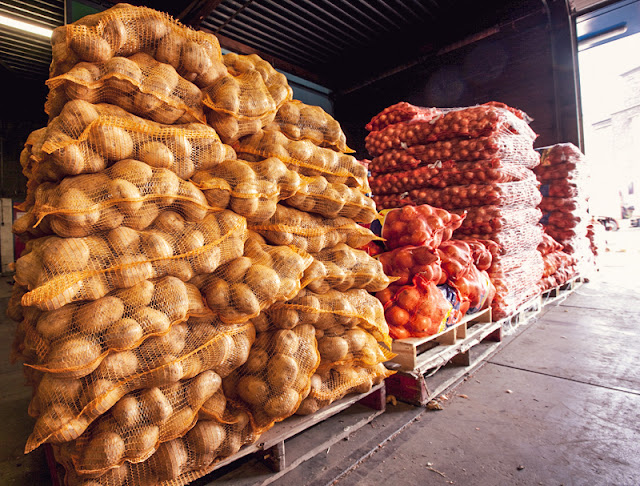A Case on Who Bears Risk of Loss - the Seller or the Buyer?
The Supreme Court of Prince Edward Island has issued a new decision that addresses the issue of which party should bear the cost of goods that spoil at sea (W.D. Potato Limited v. Visser Potato Ltd., 2018 PESC 51).
As you might expect from PEI, the case concerned a load of potatoes. The facts are easy. The seller of those potatoes was W.D Potato Ltd. ("WD"), a potato broker. The buyer was Visser Potato Ltd. ("Visser"), another broker, who needed additional potatoes to fulfill an order to a client in Argentina. When the potatoes arrived in Argentina, they were discovered to be rotten, having apparently spoiled at sea. For unknown reasons the shipping company that carried the potatoes was not a party to the lawsuit. The issue the court was asked to decide was who, as between WD and Visser, should swallow the loss. The contract between the parties (which was a basic letter) included the term "FOB farm".
The court ultimately sided with WD concluding that:
"...F.O.B. is a well known term used to denote when title in property transfers. In addition to the use of the term F.O.B. in this situation it was clear that Visser Potato was the primary mover and organizer of the entire shipload of potatoes of which W.D. Potato was only contributing a portion. The evidence made clear that W.D. Potato ended up providing 1,397.33 metric tonnes while the cargo manifest indicated that there was 3,800 metric tonnes being sent to Frito-Lay and Garlic combined. The evidence also made clear that Visser Potato contracted with the M.V. Capella and that Visser Potato purchased insurance in the amount of $1,175,000 from ACE INA insurance for the cargo."
It is not clear to me why the court did not refer to the PEI Sale of Goods Act which includes specific sections outlining when title to goods passes. In any event, this case is authority for the position that unless a contract specifies otherwise, risk of loss at sea should lie with the "primary mover and organizer" of the shipment.
As you might expect from PEI, the case concerned a load of potatoes. The facts are easy. The seller of those potatoes was W.D Potato Ltd. ("WD"), a potato broker. The buyer was Visser Potato Ltd. ("Visser"), another broker, who needed additional potatoes to fulfill an order to a client in Argentina. When the potatoes arrived in Argentina, they were discovered to be rotten, having apparently spoiled at sea. For unknown reasons the shipping company that carried the potatoes was not a party to the lawsuit. The issue the court was asked to decide was who, as between WD and Visser, should swallow the loss. The contract between the parties (which was a basic letter) included the term "FOB farm".
The court ultimately sided with WD concluding that:
"...F.O.B. is a well known term used to denote when title in property transfers. In addition to the use of the term F.O.B. in this situation it was clear that Visser Potato was the primary mover and organizer of the entire shipload of potatoes of which W.D. Potato was only contributing a portion. The evidence made clear that W.D. Potato ended up providing 1,397.33 metric tonnes while the cargo manifest indicated that there was 3,800 metric tonnes being sent to Frito-Lay and Garlic combined. The evidence also made clear that Visser Potato contracted with the M.V. Capella and that Visser Potato purchased insurance in the amount of $1,175,000 from ACE INA insurance for the cargo."
It is not clear to me why the court did not refer to the PEI Sale of Goods Act which includes specific sections outlining when title to goods passes. In any event, this case is authority for the position that unless a contract specifies otherwise, risk of loss at sea should lie with the "primary mover and organizer" of the shipment.
 |
| Potatoes Ready for Loading |